by Mindy Clegg

It’s the beginning of fall and the Halloween season! As we’re still somewhat locked down (though we should be MORE locked down, if you ask me), why not a recommendation for a horror film that addresses some aspect of modern history? In this case, the Bosnian War. Humans have long loved to be scared. Mythologies from around the world include elements of horror, showing how it seems to be a universal aspect of storytelling as scholars who study folklore and mythology have shown, such as Emily Zarka of the PBS show Monstrum.
But why do we still embrace being scared for an hour and a half despite being fully modern subjects in a more “enlightened” era? Kath Bates argued that humans seek out these thrills because they are scares that we can control. Writer and artist Merrie Destefano gave a more comprehensive set of reasons for our modern embrace of the macabre including proving to ourselves that we can overcome our fears. I would add that horror stories can help us to come to terms with horrific events in the the past that seem to defy our understanding of civilization. Put differently, horror as a film genre can help make the horrific in human history accessible for those outside of particular experiences. One example is The Maus, a horror film set in the woods near Srebrenica. Read more »

 At age twenty-three, after a brief stint of teaching at Calcutta University, I, accompanied by Kalpana, proceeded to Britain on a Commonwealth Scholarship. The Scholars from different parts of India were asked to assemble in Delhi, from where we were to take the international flight. The only experience I had of an air flight before was when I flew from Kolkata to Guwahati, representing Calcutta University in an inter-University debating competition. That flight experience had not been good, as our propeller-driven Dakota plane had hit a supposed ‘air pocket’. So I had some unnecessary trepidation for the long Delhi-London flight.
At age twenty-three, after a brief stint of teaching at Calcutta University, I, accompanied by Kalpana, proceeded to Britain on a Commonwealth Scholarship. The Scholars from different parts of India were asked to assemble in Delhi, from where we were to take the international flight. The only experience I had of an air flight before was when I flew from Kolkata to Guwahati, representing Calcutta University in an inter-University debating competition. That flight experience had not been good, as our propeller-driven Dakota plane had hit a supposed ‘air pocket’. So I had some unnecessary trepidation for the long Delhi-London flight. Almost every first draft (and third, and fifth) is overwritten. Maybe too much is happening, but usually it’s all the talk that bloats and clogs. Too much of anything at the outset can be helpful, though; every tailor knows it’s easier to cut cloth than to adhere it. But there is an art to cutting.
Almost every first draft (and third, and fifth) is overwritten. Maybe too much is happening, but usually it’s all the talk that bloats and clogs. Too much of anything at the outset can be helpful, though; every tailor knows it’s easier to cut cloth than to adhere it. But there is an art to cutting.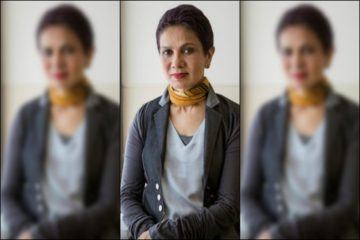 US-based Azra Raza, a respected oncologist of Pakistani origin, has been treating cancer patients for around two decades. Her grouse, articulated in her book, The First Cell, is that most new drugs add mere months to one’s life, that too at great physical, financial and emotional cost. In her telling, the reason the war on cancer has reached an impasse is because doctors are essentially trying to protect the last cell, instead of checking the disease at birth. This has to change, and now, Raza writes with an evangelist’s passion.
US-based Azra Raza, a respected oncologist of Pakistani origin, has been treating cancer patients for around two decades. Her grouse, articulated in her book, The First Cell, is that most new drugs add mere months to one’s life, that too at great physical, financial and emotional cost. In her telling, the reason the war on cancer has reached an impasse is because doctors are essentially trying to protect the last cell, instead of checking the disease at birth. This has to change, and now, Raza writes with an evangelist’s passion. When the philosopher Amia Srinivasan’s essay “The Right to Sex” appeared in the London Review of Books, in 2018, it garnered a level of attention not usually paid to writing by academics. From the provocative title to the bracing clarity of the content (“Sex is not a sandwich,” Srinivasan wrote), the essay’s stylistic appeal was matched by a willingness to entertain positions that had long been off the table in both feminist and mainstream discussions of sex. The piece responded to the commentary surrounding Elliot Rodger, perhaps the most famous of the so-called incels, or involuntary celibates, who in 2014 killed six people after penning a 107,000-word manifesto that railed against the women who had deprived him of sex. Many feminists were quick to read Rodger as a case study in male sexual entitlement. Fewer wanted to broach one of the manifesto’s thornier claims: that Rodger, who was half white and half Malaysian Chinese, had been denied sex because of his race. Srinivasan took Rodger’s undesirability head-on: of course, no one has a right to be desired, she wrote. But we ought to acknowledge, as second-wave feminists more readily did, that who or what is desired is a political question, subject to scrutiny.
When the philosopher Amia Srinivasan’s essay “The Right to Sex” appeared in the London Review of Books, in 2018, it garnered a level of attention not usually paid to writing by academics. From the provocative title to the bracing clarity of the content (“Sex is not a sandwich,” Srinivasan wrote), the essay’s stylistic appeal was matched by a willingness to entertain positions that had long been off the table in both feminist and mainstream discussions of sex. The piece responded to the commentary surrounding Elliot Rodger, perhaps the most famous of the so-called incels, or involuntary celibates, who in 2014 killed six people after penning a 107,000-word manifesto that railed against the women who had deprived him of sex. Many feminists were quick to read Rodger as a case study in male sexual entitlement. Fewer wanted to broach one of the manifesto’s thornier claims: that Rodger, who was half white and half Malaysian Chinese, had been denied sex because of his race. Srinivasan took Rodger’s undesirability head-on: of course, no one has a right to be desired, she wrote. But we ought to acknowledge, as second-wave feminists more readily did, that who or what is desired is a political question, subject to scrutiny. As spring ends, maple trees begin to unfetter winged seeds that flutter and swirl from branches to land gently on the ground. Inspired by the aerodynamics of these helicoptering pods, as well as other
As spring ends, maple trees begin to unfetter winged seeds that flutter and swirl from branches to land gently on the ground. Inspired by the aerodynamics of these helicoptering pods, as well as other 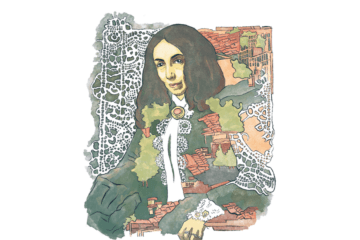 During her lifetime, Elizabeth Barrett Browning (1806-61) was widely regarded as Britain’s best female poet. Her groundbreaking work helped sway public opinion against slavery and child labor and changed the direction of English-language poetry for generations. Yet within 70 years of her death, Barrett Browning was no longer viewed as an international literary superstar but as an invalid with a small, couch-bound life. By the 1970s, critics described her as lacking the talent of her husband, Robert Browning, and hindering his writing. Fiona Sampson challenges those views in “Two-Way Mirror: The Life of Elizabeth Barrett Browning,” the first new biography of the poet in more than 30 years. Sampson, whose works include the critically acclaimed biography “In Search of Mary Shelley,” reframes Barrett Browning’s reputation by highlighting her development as a writer despite the many restrictions she faced in Victorian society.
During her lifetime, Elizabeth Barrett Browning (1806-61) was widely regarded as Britain’s best female poet. Her groundbreaking work helped sway public opinion against slavery and child labor and changed the direction of English-language poetry for generations. Yet within 70 years of her death, Barrett Browning was no longer viewed as an international literary superstar but as an invalid with a small, couch-bound life. By the 1970s, critics described her as lacking the talent of her husband, Robert Browning, and hindering his writing. Fiona Sampson challenges those views in “Two-Way Mirror: The Life of Elizabeth Barrett Browning,” the first new biography of the poet in more than 30 years. Sampson, whose works include the critically acclaimed biography “In Search of Mary Shelley,” reframes Barrett Browning’s reputation by highlighting her development as a writer despite the many restrictions she faced in Victorian society.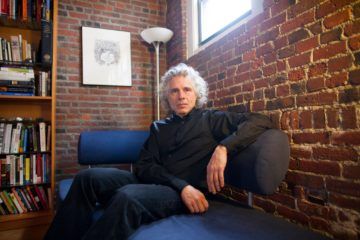 How should we think of human rationality? The cognitive wherewithal to understand the world and bend it to our advantage is not a trophy of Western civilization; it’s the patrimony of our species. The San of the Kalahari Desert in southern Africa are one of the world’s oldest peoples, and their foraging lifestyle, maintained until recently, offers a glimpse of the ways in which humans spent most of their existence. Hunter-gatherers don’t just chuck spears at passing animals or help themselves to fruit and nuts growing around them. The tracking scientist Louis Liebenberg, who has worked with the San for decades, has described how they owe their survival to a scientific mindset. They reason their way from fragmentary data to remote conclusions with an intuitive grasp of logic, critical thinking, statistical reasoning, correlation and causation, and game theory.
How should we think of human rationality? The cognitive wherewithal to understand the world and bend it to our advantage is not a trophy of Western civilization; it’s the patrimony of our species. The San of the Kalahari Desert in southern Africa are one of the world’s oldest peoples, and their foraging lifestyle, maintained until recently, offers a glimpse of the ways in which humans spent most of their existence. Hunter-gatherers don’t just chuck spears at passing animals or help themselves to fruit and nuts growing around them. The tracking scientist Louis Liebenberg, who has worked with the San for decades, has described how they owe their survival to a scientific mindset. They reason their way from fragmentary data to remote conclusions with an intuitive grasp of logic, critical thinking, statistical reasoning, correlation and causation, and game theory. Servaas Storm over at INET:
Servaas Storm over at INET: Becca Rothfield in Boston Review:
Becca Rothfield in Boston Review: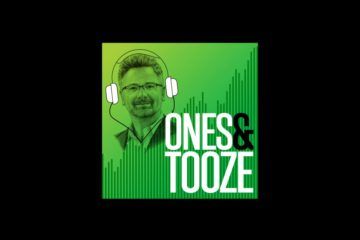 Adam Tooze at his podcast Ones and Tooze over at Foreign Policy:
Adam Tooze at his podcast Ones and Tooze over at Foreign Policy: Marco D’Eramo in NLR’s Sidecar (Photo by
Marco D’Eramo in NLR’s Sidecar (Photo by  In December 1915, while serving on the Russian front, the German astronomer and mathematician Karl Schwarzschild sent a letter to Albert Einstein that contained the first precise solution to the equations of general relativity. Schwarzschild’s approach had been simple. He had plugged Einstein’s equations into a model that posited an ideal, perfectly spherical star, in order to calculate how its mass would warp the surrounding space. Schwarzschild’s solution was elegant, but it revealed something monstrous: If the same process were applied not to an ideal star but to one that had begun to collapse, its density and gravity would increase infinitely, creating an enclosed region of space-time, or a singularity, from which nothing could escape. Schwarzschild had given the world its first glimpse of black holes.
In December 1915, while serving on the Russian front, the German astronomer and mathematician Karl Schwarzschild sent a letter to Albert Einstein that contained the first precise solution to the equations of general relativity. Schwarzschild’s approach had been simple. He had plugged Einstein’s equations into a model that posited an ideal, perfectly spherical star, in order to calculate how its mass would warp the surrounding space. Schwarzschild’s solution was elegant, but it revealed something monstrous: If the same process were applied not to an ideal star but to one that had begun to collapse, its density and gravity would increase infinitely, creating an enclosed region of space-time, or a singularity, from which nothing could escape. Schwarzschild had given the world its first glimpse of black holes.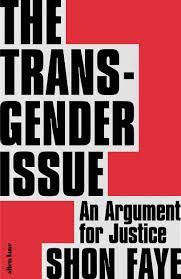 The
The 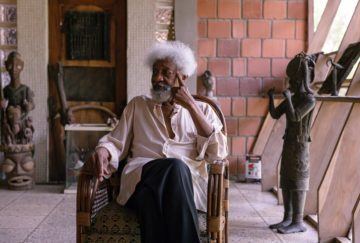 Wole Soyinka the firebrand activist is always getting Wole Soyinka the writer into trouble.
Wole Soyinka the firebrand activist is always getting Wole Soyinka the writer into trouble.